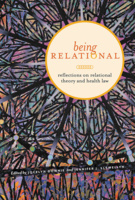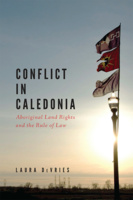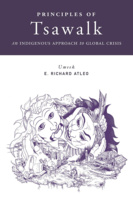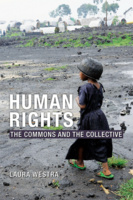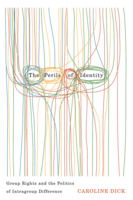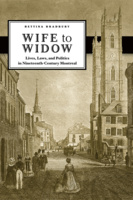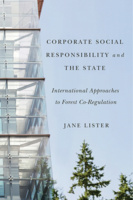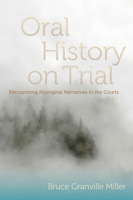Being Relational
Reflections on Relational Theory and Health Law
This groundbreaking collection explores relational theory and how it can be brought to bear on practical areas of concern in health law and policy.
Conflict in Caledonia
Aboriginal Land Rights and the Rule of Law
A powerful account of how land disputes reflect complex and often competing understandings of law, landscape, and identity among First Nations and non-Aboriginal people in Canada.
Principles of Tsawalk
An Indigenous Approach to Global Crisis
Hereditary chief Umeek weaves together Nuu-chah-nulth and Western worldviews to revitalize contemporary approaches to the environment and the plight of indigenous peoples.
Human Rights
The Commons and the Collective
Laura Westra argues that international and environmental law must place the rights of the collective before those of the individual if we are to protect our common heritage -- the environment, its air, water, and biodiversity -- and ensure humanity’s survival.
Ghost Dancing with Colonialism
Decolonization and Indigenous Rights at the Supreme Court of Canada
Drawing on history, international law, and recent decision-making in the Supreme Court, this book seeks the truth behind allegations that Canadian law continues to colonize Indigenous peoples.
The Perils of Identity
Group Rights and the Politics of Intragroup Difference
Caroline Dick asks how group identity claims, especially in the courts, obscure significant intragroup differences.
Westward Bound
Sex, Violence, the Law, and the Making of a Settler Society
Through the study of hundreds of criminal cases, Westward Bound explores how encounters between the courts and ordinary people on the Canadian Prairies contributed to the construction of race, class, and gender hierarchies in a settler society.
Wife to Widow
Lives, Laws, and Politics in Nineteenth-Century Montreal
The diversity of women’s lives as wives then as widows negotiating the law, patriarchy, family relationships, and the economy in 19th-century Montreal come alive in this first major study of widows in Canada.
Corporate Social Responsibility and the State
International Approaches to Forest Co-Regulation
This book provides a clear theoretical lens and practical guidance on the prospects and limits of leveraging private corporate social responsibility standards, such as forest certification, alongside government regulatory efforts to achieve more effective and adaptive sustainability solutions.
The Freedom of Security
Governing Canada in the Age of Counter-Terrorism
A trenchant exploration of how security and counter-terrorism practices are not only eroding civil liberties, but reshaping the very nature of our political freedom.
Beyond Blood
Rethinking Indigenous Identity
Despite what the criteria of the Indian Act states regarding Aboriginal status, Palmater argues that blood should not determine belonging.
Property, Territory, Globalization
Struggles over Autonomy
Focusing on sites of friction in property regimes, this book reveals that a politics of place can help local actors build bases of autonomy to withstand, and even reshape, the forces of globalization.
Oral History on Trial
Recognizing Aboriginal Narratives in the Courts
This compelling analysis of Aboriginal, legal, and anthropological concepts of fact and evidence argues for the inclusion of Aboriginal oral histories in Canadian courts, and pushes for a reconsideration of the Crown's approach to oral history.
Transforming Law's Family
The Legal Recognition of Planned Lesbian Motherhood
Drawing on the rarely heard voices of Canada’s lesbian mothers, Transforming Law’s Family explores the legal dimensions of planned lesbian parenthood and proposes avenues for legal change.
Judging Homosexuals
A History of Gay Persecution in Quebec and France
This history examines shifting constructions of homosexuality over time through a comparative analysis of gay persecution in France and Quebec.

